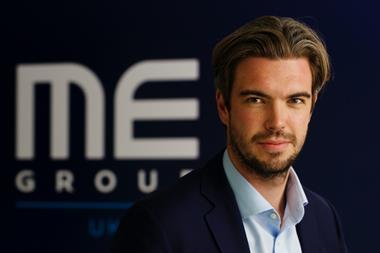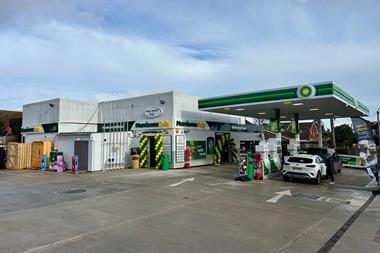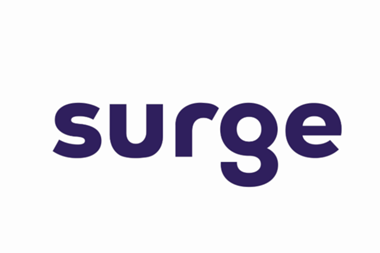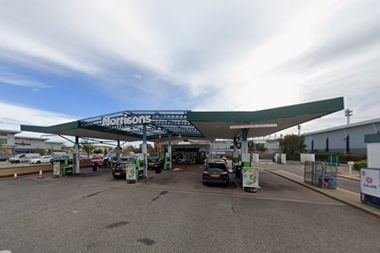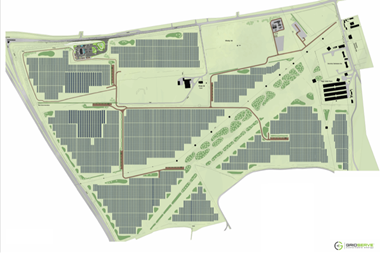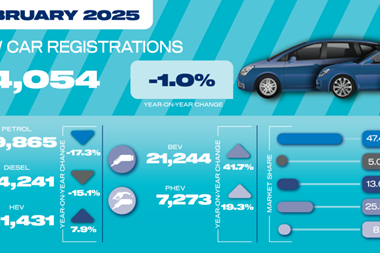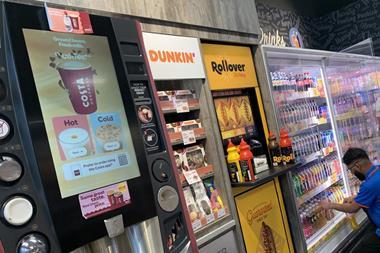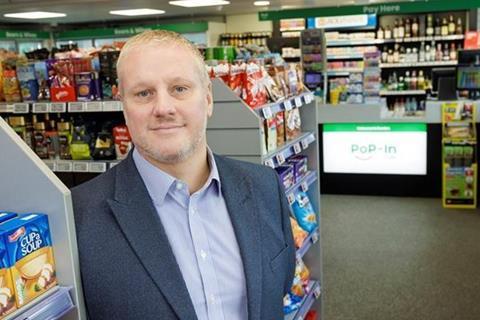
Top 50 Indie MPK Garages has come up with a series of efficiencies which retail director Wayne Harrand says will prime the business for this April’s increases in employer National Insurance contributions, and minimum pay.
The Leicester-based operator, which has 28 forecourts, has deployed a range of cost-saving measures using technology and new workplace practices.
Electronic shelf labels (ESLs) represent a relatively easy win, Harrand says, and while many mid-to-large groups have already introduced these, smaller operators and sceptics may be surprised to learn of the savings they can bring.
“The savings will depend on your size, but for us, we saved about 21,000 hours over the estate. It’s the physical labour of printing labels out, going out around the store, but also from time to time you might have to change prices on an entire range of products.”
Planogram updates can also be managed far more easily with ESLs, Harrand says: “I’ve got one person in the office who sits there and sends out a new planogram, because we have a mirror image of the shop ranges on our computer screens. It takes all the time and tasks out of the store.”
Calculating costs based on April’s minimum wage, ESLs will save MPK over £250,000 a year – although clearly the cost of the equipment has to be taken into account.
Upgrading elderly fridges to units with doors is a similarly straightforward decision, as the reduced energy costs this can bring are significant, while the slight amount of additional friction opening a door places on consumers doesn’t result in reduced sales. Harrand says this move can reduce chillers’ energy consumption by around a third.
Automation is another big area where efficiencies can be found. “We’re restructuring through automation”, Harrand says. This covers a range or areas, but new-starter paperwork is one example. He explains: “You’ve got to think about the cost of a new starter. Instead of colleagues going through the paperwork with them, we have a digital programme. The new colleague gets sent a link, and it asks them to load up documentation and complete some forms.” Those details are submitted before the new starter’s first day, and while they have to be checked centrally this is a quick and simple process.
“We also have automated fridge-temperature checks, and suggested self-ordering on brand lines we know are no-risk – lines like tobacco, alcohol and vapes – things we know that will sell, and where stock is monitored heavily anyway.”
Gap counts can also help significantly, Harrand says. When restocking stores, staff scan any gaps on the shelves, with in-store shortages being compared against MPK’s warehouse. If the required items aren’t in stock, they’re automatically added to a suggested order. This process, when tested on grocery, indicated savings of around seven hours a week per store, and so is soon to be rolled out across their forecourts.
MPK is also working more closely with its suppliers to ensure it synchronises delivery times with staff availability, so that if an order is going to be late the store is notified of this as soon as possible, and can liaise with staff to ensure their hours align with the delivery being put away.
Echoing the success self-service touchscreens have found in the fast-food industry, Harrand says self-service checkouts have been a wise investment. “Once you put a self-service till in, it’s one colleague running two or three tills.” Redeploying staff hours freed up by this technology can, in turn, allow for restocking during busy times when shelves run low. And while some customers are averse to self-service, Harrand says 60-70% of are happy to use them. They buy more when using them, too, with spends per basket increasing by between 5 and 30 pence depending on location.
Stock management is another big area where savings can be found, Harrand says: “Make sure you’re not carrying extra stock. We’ve reduced hundreds and thousands of pounds of stock as we found we didn’t’ need to carry them. You don’t need to carry an extra five cases of baked beans.
”You also might find you have too much range, too much choice, so take two or three lines out so you can double up on volume. That way you’ve got enough stock on the shelves to sell during peak times, instead of running out and having to restock.
Taking approaches such as these can result both in reduced savings and increased sales. And with some forecourt operators considering cutting staff as times get tough, Harrand has words of caution: “Only do this if you’re absolutely sure. Have you maximised your opportunities everywhere else? Have you really focussed on staff availability? Have you really focused on making your business lean? Not lean for costs, lean for sales. Strip out unnecessary processes that affect your sales, and make it sleek so it’s lean and efficient.”





















